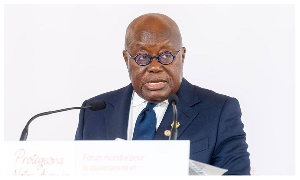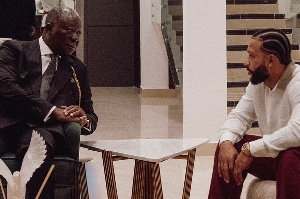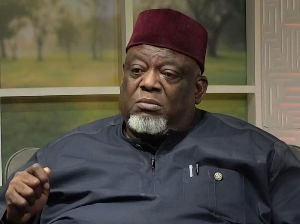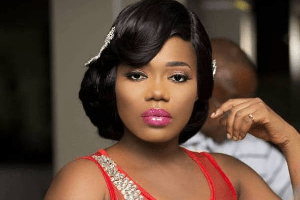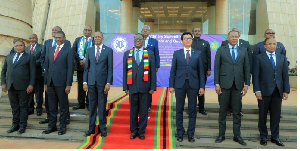At the NPP's manifesto launch on August 18, 2024, the Member of Parliament for Abuakwa South, Samuel Atta Akyea sparked a crucial debate on Ghana’s future leadership by contrasting Dr. Mahamudu Bawumia’s economic expertise with John Dramani Mahama’s renowned communication skills.
Atta Akyea emphasised the need for a leader with strong economic credentials over a persuasive orator. This discussion invites reflection on the diverse professional backgrounds of Ghana’s past Presidents, each of whom brought a distinct skillset to the role.
Kwame Nkrumah (1957-1966):
Kwame Nkrumah, Ghana’s first President, was a trailblazer in the fight for independence and the Pan-African movement. His early career as a teacher, journalist, and writer laid the intellectual groundwork for his presidency.
Leading Ghana until 1966, Nkrumah’s vision of African unity and socialism defined his leadership era. His early experiences shaped his vision for Ghana and the broader African continent.
As a teacher, Nkrumah was deeply engaged with the educational needs of his community, emphasising the importance of knowledge and self-awareness in the fight against colonialism. His journalistic work, including contributions to newspapers and magazines, allowed him to articulate his political ideas and mobilise public opinion against colonial rule. His writings, particularly in "Africa Must Unite" and "The Autobiography of Kwame Nkrumah," laid out his principles of socialism and African unity, which became the cornerstone of his political agenda.
Nkrumah’s leadership from 1957 to 1966 was characterised by ambitious plans to transform Ghana into a modern, industrialised nation. He spearheaded major infrastructure projects, such as the construction of the Akosombo Dam and the development of roads and schools, aiming to lay the foundation for economic self-sufficiency. His vision extended beyond Ghana, as he fervently advocated for the unity of African states and the establishment of a unified Africa free from colonial and neo-colonial influences.
Dr. Kofi Abrefa Busia (1969-1972):
Dr. Kofi Abrefa Busia, Prime Minister from 1969 to 1972, was distinguished by his academic achievements. As a professor of sociology and culture at the University of Ghana and Oxford University, Busia’s scholarly insights shaped his policies, focusing on social reform and economic development during his time in office.
Jerry John Rawlings (1981-2001):
Jerry John Rawlings ruled Ghana from 1981 to 2001, marking an era of significant transformation in the country's political and economic landscape. Rawlings began his career as a fighter pilot in the Ghana Air Force, where his leadership and discipline were evident. His transition from a military officer to a prominent political figure was catalysed by his involvement in two military coups.
Rawlings first came to prominence in 1979 with a coup that briefly overthrew the government of General Fred Akuffo. Although this initial coup was short-lived, it established Rawlings as a key player in Ghanaian politics. In 1981, he led a second coup that brought him to power as the Chairman of the Provisional National Defence Council (PNDC). This second coup marked the beginning of his long presidency.
During his time in office, Rawlings implemented a series of economic and infrastructural reforms aimed at stabilising the Ghanaian economy, which had been plagued by instability and inefficiency. His administration focused on restructuring state-owned enterprises, improving agricultural production, and investing in infrastructure projects such as roads, schools, and hospitals. His economic policies, while sometimes controversial, were aimed at reducing poverty and fostering development.
Rawlings’ presidency was also marked by his commitment to social justice and anti-corruption. He took a strong stance against corruption and maladministration, which resonated with many Ghanaians who were frustrated with previous regimes. His government introduced various social programmes to improve living standards and address inequalities.
Despite his focus on development and reform, Rawlings' tenure was not without criticism. His government was accused of authoritarian practices, including suppression of political dissent and restrictions on press freedom.
In 2001, Rawlings left office after serving two consecutive terms.
John Agyekum Kufuor (2001-2009):
John Agyekum Kufuor served as President of Ghana from 2001 to 2009. Prior to his presidency, Kufuor had a notable career in law and politics. He was a barrister by profession, having studied law at Oxford University. His legal background informed his approach to governance, emphasising the rule of law and administrative efficiency.
During his presidency, Kufuor focused on significant economic and infrastructure reforms. His administration is credited with implementing policies that spurred economic growth, improved public sector efficiency, and enhanced Ghana’s international standing.
John Evans Atta Mills (2009-2012):
John Evans Atta Mills, who served as President of Ghana from 2009 to 2012, was distinguished by his academic rigour and dedication to public service. Prior to his presidency, Mills had an extensive career in academia, serving as a law professor at the University of Ghana and later as Vice President under Jerry Rawlings. His background in law and academia profoundly influenced his approach to governance.
Mills’ presidency was characterised by a commitment to development and social progress. He brought a scholarly and methodical approach to leadership, focusing on key areas such as education, health, and economic growth. Under his administration, significant investments were made in the education sector, including efforts to improve infrastructure, teacher training, and access to education, particularly in underserved areas.
In health, Mills prioritised the expansion of healthcare services and the improvement of public health systems. His government implemented various programs aimed at increasing access to healthcare, addressing issues such as maternal and child health, and combating diseases like malaria and HIV/AIDS.
Economically, Mills’ tenure was marked by efforts to stabilise and grow Ghana’s economy amidst global and domestic challenges. His administration worked on enhancing infrastructure, promoting industrialisation, and fostering private sector development. Mills also emphasised the importance of good governance and transparency, working to combat corruption and improve public sector efficiency.
John Dramani Mahama (2012-2017):
John Dramani Mahama, President of Ghana from 2012 to 2017, entered office with a diverse professional background that enriched his approach to leadership. Before his presidency, Mahama had a varied career as a history teacher, journalist, and Member of Parliament. His experience in these roles shaped his understanding of Ghana's socio-political landscape and influenced his policy priorities.
As a history teacher and journalist, Mahama developed a keen insight into Ghana’s historical and socio-economic issues, which he leveraged during his presidency. His background in journalism provided him with strong communication skills, which were crucial in addressing the public and managing media relations.
Mahama’s presidency was marked by a significant focus on infrastructure development. His administration undertook numerous projects aimed at improving Ghana's physical and social infrastructure, including road construction, the expansion of educational facilities, and the development of healthcare services. These initiatives were part of his broader strategy to stimulate economic growth and enhance the quality of life for Ghanaians.
Nana Addo Dankwa Akufo-Addo (2017-present):
Nana Addo Dankwa Akufo-Addo has been Ghana's President since 2017, bringing a distinguished career as a barrister and human rights activist to his leadership role. His professional background in law and advocacy has significantly shaped his presidency, influencing his approach to governance and policy-making.
Akufo-Addo’s legal career includes significant contributions as a barrister specialising in human rights and constitutional law. His work as a human rights activist involved fighting for justice and advocating for the protection of civil liberties, which laid the groundwork for his presidency. His commitment to legal principles and human rights has been a cornerstone of his leadership.
NAY/ADG
Watch the latest episode of Everyday People on GhanaWeb TV below:
Meanwhile, GhanaWeb is set to premiere a documentary on playwright Uncle Ebo Whyte on Monday, August 19, 2024. Watch the trailer below:
Click to view details



General News of Monday, 19 August 2024
Source: www.ghanaweb.com





